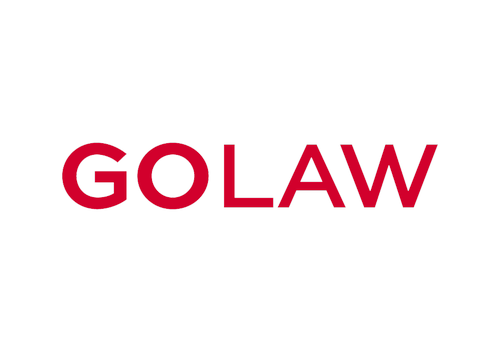- The Criminal Code of Ukraine has been amended with a new ground for commuting a sentence of imprisonment
On November 06, 2022, the law on amending Article 82 of the Criminal Code of Ukraine came into force. It provides that a sentence of life imprisonment may be commuted to a term of fifteen to twenty years if the convict has served at least fifteen years of the sentence imposed by the court.
- Ukraine has acceded to the Convention on Extradition
On November 15, 2022, a law acceding to the Convention on Extradition came into force. It establishes legal grounds for cooperation with the state parties' authorities on extradition for prosecution or execution of a sentence against persons hiding in the state parties' territories to evade justice.
Ukraine ratified the Convention with the following reservations:
- Ukraine will not extradite Ukrainian citizens to another state;
- Ukraine may refuse to extradite a person if there are reasonable grounds to believe that extradition contradicts the interests of Ukraine's national security, and
- in Ukraine, extradition requests shall be made and received by the Office of the Prosecutor General (during the pre-trial investigation) and the Ministry of Justice of Ukraine (during court proceedings or execution of a sentence).
Notably, the state parties to the Convention are the countries mainly of the American continent, including the United States and Mexico.
Ukraine joined the European Convention on Extradition in 1998. State parties of this Convention include member states of the Council of Europe, Israel, South Africa, and South Korea.
- Criminal liability for torture has been toughened
On December 29, 2022, a law came into force aiming to harmonize the provisions on torture and other provisions of the Criminal Code of Ukraine with the UN Convention against Torture and Other Cruel, Inhuman, or Degrading Treatment or Punishment.
Notably, strengthening criminal liability for torture is the first step in addressing law enforcement officers' ill-treatment of detainees and suspects at the initial stages of pre-trial investigation. In addition, the necessity to prosecute servicemen of the occupation armed forces for crimes of torture requires certain amendments to the Criminal Code of Ukraine.
Article 127 of the Criminal Code of Ukraine has been significantly amended. Thus, a new part establishes a special qualifying circumstance for torture, such as the commission of this crime by a state representative or a foreign state representative. Previously, the crime under Article 127 of the Criminal Code of Ukraine did not include a special criminal offender as an element of the committing of torture.
Henceforth, torture, if committed by a state representative or a foreign state representative, shall be punished through imprisonment for 7 to 12 years, with deprivation of the right to occupy certain positions or engage in certain activities for up to 3 years.
The note to Art. 127 of the Criminal Code of Ukraine explains the terms а "state representative" and "foreign state representative."
Thus, state representatives include:
- public officials,
- persons appearing to be public officials, and
- persons acting at their instigation or with their knowledge or tacit consent.
The foreign state representatives, besides public officials of a foreign state and servicemen and law enforcement officers, also are:
- members of irregular, illegal armed organizations, armed bands, and mercenary groups formed, subordinated, controlled, and financed by the russian federation,
- representatives of the occupation authorities of the russian federation, which include its state authorities and structures functionally responsible for the administration of the temporarily occupied territories of Ukraine, and
- representatives of self-proclaimed authorities controlled by the russian federation that have usurped the exercise of power in the temporarily occupied territories of Ukraine.
Moreover, the discharge from criminal liability due to the statute of limitations, discharge from punishment with probation, and imposition of a sentence milder than prescribed by law shall not apply to convicted state representatives or foreign state representatives in the crime of torture.
- The closing of criminal proceedings under Article 284 of the Criminal Procedural Code of Ukraine has been amended
On December 29, 2022, a law came into force that incorporated a new chapter to the Criminal Procedural Code of Ukraine regarding criminal proceedings in respect of an act of criminal unlawfulness that has been established by a law ceased to be effective.
According to the decision of the Constitutional Court of Ukraine as of June 08, 2022, paragraph 4 of part 1 of Article 284 of the Criminal Procedural Code of Ukraine, establishing the enactment of a law that abolishes criminal liability for an act committed by a person as a ground for closing criminal proceedings, has been recognized as unconstitutional.
The decision points out that closing criminal proceedings on non-rehabilitative grounds presumes a person has committed a criminal offense. Therefore, it leads to adverse consequences for such a person, in particular, casts doubt on his or her innocence. However, the closure of criminal proceedings without a person's consent restricts his or her right to a defense against charges of committing the act. In this regard, part 1 of Article 284 of the Criminal Procedural Code of Ukraine has been amended with a new ground in clause 4-1 - "the law establishing the criminal unlawfulness of the act has ceased to be effective."
Henceforth, the prosecutor shall close the criminal proceedings on the grounds provided in paragraph 4-1, part 1, Article 284 of the Criminal Procedural Code of Ukraine, only if a suspect does not object to it.
If the suspect does not give consent, the criminal proceedings shall continue according to the general procedure. However, the prosecutor, having recognized the evidence collected during the pre-trial investigation as sufficient to establish that the suspect committed an act of criminal unlawfulness that has been established by a law that ceased to be effective, is obliged to inform the suspect and his or her defense counsel of the completion of the pre-trial investigation and provide access to the pre-trial investigation materials.
Thereafter, the prosecutor shall apply to the court with a motion to close criminal proceedings against the suspect on the grounds under paragraph 4-1 of part 1 of Article 284 of the Criminal Procedural Code of Ukraine.
If the suspect objects to the closure of the criminal proceedings on the grounds specified in paragraph 4-1 of part 1 of Article 284 of the Criminal Procedural Code of Ukraine, and the court concludes that the suspect has committed an act of criminal unlawfulness that has been established by a law ceased to be effective, the court shall issue a ruling to close the criminal proceedings under paragraph 1-2 of part 2 of Article 284 of the Criminal Procedural Code of Ukraine.
There may also be that the court does not conclude that the suspect committed an act of criminal unlawfulness established by a law that ceased to be effective. In that case, the court shall issue a ruling on the closure of the criminal proceedings due to the absence of a criminal offense or its elements in the suspect's actions, i.e., under paragraphs 1 or 2 of part 1 of Article 284 of the Criminal Procedural Code of Ukraine.
In case the indictment has been submitted to the court, and the trial is already in progress, but at this stage, the law establishing the criminal unlawfulness of the act has ceased to be effective, the court shall suspend the trial and request the accused's consent to the closure of the criminal proceedings on the grounds provided for in clause 4-1 of part 1 of Article 284 of the Criminal Procedural Code of Ukraine.
The court shall close the criminal proceedings if the accused does not object.
If the accused does not give consent and the court concludes that the accused committed an act of criminal unlawfulness that has been established by a law that has ceased to be effective, the court shall issue a ruling on the closure of the criminal proceedings under paragraph 1-2 of part two of Article 284 of the Criminal Procedural Code of Ukraine.
If the court does not establish that the accused committed an act of criminal unlawfulness established by a law that has ceased to be effective, the court shall render an acquittal.
- Criminal liability for committing certain military criminal offenses has been toughened
On January 27, 2023, a law came into force that amended the provisions of the General Part and the Section XIX "Criminal Offenses Against the Established Procedure for Military Service" of the Criminal Code of Ukraine.
Henceforth, failure to comply with an order committed during martial law or in a combat situation, if it has caused grave consequences, shall be punished by imprisonment for 5 to 8 years (instead of imprisonment for 3 to 7 years).
Moreover, imposition of a punishment milder than prescribed by law and discharge from punishment on probation is no longer permissible for those convicted of:
- failure to comply with an order (Article 403 of the Criminal Code of Ukraine),
- threats or violence against a commander (Article 405 of the Criminal Code of Ukraine),
- absence without leave from a military unit or place of service (Article 407 of the Criminal Code of Ukraine),
- desertion (Article 408 of the Criminal Code of Ukraine), and
- unauthorized leaving of a battlefield or refusal to use weapons (Article 429 of the Criminal Code of Ukraine).
Notably, service members suspected or accused of committing these crimes may be subject to a preventive measure of custody only.
- The Criminal Procedure Code of Ukraine has been amended to protect the rights and interests of a child in case of detention or custody of his or her parents
On January 12, 2023, the Verkhovna Rada of Ukraine adopted a law that has established a procedure for overseeing urgent measures for the temporary placement of a child left without parental care due to detention, imposition of custody, provisional or extradition arrest against parents.
Thus, for example, if during the consideration of a motion for custody, the investigating judge or court finds out that due to the imposition of custody, the child of the suspect or accused would be left without parental care, the investigating judge or court shall oblige the prosecutor to notify the National Police, authorized unit and the guardianship authority at the place of residence of such a child of the fact of leaving the child without parental care.
Immediately after the temporary placement of a child left without parental care, the guardianship authority informs the investigator, prosecutor, investigating judge, and court of the child's place of residence (stay). Upon receipt of such information, the investigator and prosecutor shall immediately notify the suspect or accused of the child's place of residence (stay).

























